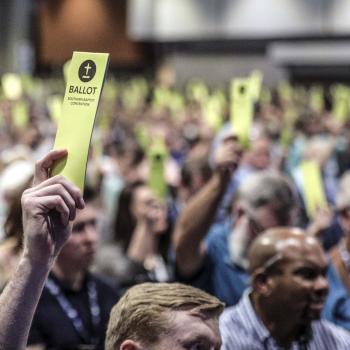I am delighted to share this summer-themed guest post on religion and celebrity in the career of an evangelical surfer by David Nanninga, a doctoral student in the History Department at Baylor University. His research focuses on the Conservative Right in 20th-century America and its relationship to Religion, Culture, and Sports.

In exactly one month, the eyes of the sports world will turn to Paris as the summer Olympics begin. Thousands of athletes from over 200 sovereign nations will compete in this year’s games, which will be watched by millions. Every four years, athletes in smaller, more niche sports suddenly have the opportunity to become celebrities overnight. However, sometimes celebrity is thrust upon athletes because of a horrific event that happened to them. Think Nancy Kerrigan, or, in the world of evangelicalism, think the Soul Surfer, Bethany Hamilton.

On October 31, 2003, Bethany Hamilton nearly died. That Halloween morning started like any other for the thirteen-year-old athlete from Kauai, Hawaii: with surfing. Suddenly, a fourteen-foot-long tiger shark attacked Hamilton. The shark only bit once, but it was enough to sever Hamilton’s arm to the shoulder. Many expected she would never be able to surf again, but remarkably, she was back on the board within a month.
Hamilton became a public figure after she recovered from the shark attack. Her family hired a manager, who within a month of the attack, said that he was trying to “Make this 15 minutes of fame into Brand Bethany Hamilton.” Hamilton expressed misgivings with such intense attention, but thought that some good could come out of her story if she could share her faith in Christ with others.
Since then, Bethany has been a prominent evangelical celebrity. Through her, one can see the evolution of evangelical celebrity across the 2000s and 2010s. She began in traditional secular media, then crossed over to evangelical media before turning to social media influencing and overt political action. Her trajectory represents the changing nature of female evangelical celebrity in a microcosm.
Without a doubt, the apex of Hamilton’s fame came with the release of Soul Surfer in 2004 and its movie adaptation in 2011. Despite being published by MTV Books, Soul Surfer was soaked with evangelical rhetoric. The book contained a chapter entitled “Keeping the Faith,” in which Bethany stated her faith in Christ, writing, “It was my choice to become a believer in him. The way I see it, putting your faith in God is something that each person has gotta come to on his or her own,” (Hamilton and Bundschuh, Soul Surfer, 135). The film proved to be a modest hit at the box office, grossing $47 million compared to an $18 million budget. It also received glowing reviews from popular audiences, earning a rare A+ rating from CinemaScore.
Still, the reception in evangelical circles was not universally positive. To some evangelicals, the film was not sufficiently modest in its presentation of Bethany and other female surfer’s bodies. In other words, they believed that teenage Bethany and other underage female characters wearing bikinis were scandalous. Christian movie review websites such as Crosswalk and Plugged In (funded by Focus on the Family) also mentioned bikinis in their content warning sections for parents. While the majority of evangelical audiences enjoyed it, for some, the film was not conservative enough in its depiction of women’s bodies.
The question of Bethany’s body dominated discussions surrounding the film, reflecting the height of purity culture in white evangelicalism in the 2000s-2010s. Bethany herself was also active in spreading purity culture through her books and public persona. Monetary constraints were a significant factor in her turn towards celebrity influence. In the 2018 documentary Bethany Hamilton: Unstoppable, Hamilton confessed that she “Had a lot of financial obligations to make sure I was making enough money to keep things afloat. Surfing wasn’t really enough.”
Considering those financial limitations, it makes sense that Hamilton would attempt to find as many loyal fans as possible, especially within white evangelicalism. Regardless of the motivation, it is Hamilton’s promotion of beliefs and practices like dating for marriage, abstinence pledges, modesty, and traditional gender roles that help explain her subsequent shift toward political activism.
Bethany’s rhetoric surrounding sexuality and her affinity for purity culture was most obvious in her public activity and devotional writing geared toward teenage girls. At one point, Hamilton’s brothers partnered with the group True Love Waits, an international parachurch organization that promoted abstinence towards teenagers. Three of Hamilton’s books are devotional or spiritual guidance books aimed at teenage girls, including Soul Surfer Devotions (2011), Ask Bethany: Updated Edition (2014), and Rise Above: A 90-Day Devotional (2007). Within those three books, Bethany authored ten devotional entries related to sex, dating, and body image/beauty for girls.
 The key theme for all the entries was evident in their titles: “Waiting for my Prince.” “Waiting Until Marriage.” “Resisting Temptation.” Across all the entries, Bethany implores her audience to abide by her understanding of Christian teachings and wait until marriage to have sex. Hamilton balanced the promise of the goodness of marriage with the danger of what having sex before marriage would mean for girls, particularly girls’ worth. This is most explicitly seen within a passage from her devotional entry “Waiting for Marriage”: “I’ve committed to wait until marriage before having sex. If you haven’t waited for marriage and you feel guilty because of what you did, know that God offers forgiveness and a chance to start over and become a virgin again in his sight. Ask God for forgiveness today, and stay pure for your future husband,” (Hamilton, Soul Surfer Devotions, 51). The entry closed by quoting 1 Corinthians 6:19-20, a common passage used in evangelical abstinence-only sex education.
The key theme for all the entries was evident in their titles: “Waiting for my Prince.” “Waiting Until Marriage.” “Resisting Temptation.” Across all the entries, Bethany implores her audience to abide by her understanding of Christian teachings and wait until marriage to have sex. Hamilton balanced the promise of the goodness of marriage with the danger of what having sex before marriage would mean for girls, particularly girls’ worth. This is most explicitly seen within a passage from her devotional entry “Waiting for Marriage”: “I’ve committed to wait until marriage before having sex. If you haven’t waited for marriage and you feel guilty because of what you did, know that God offers forgiveness and a chance to start over and become a virgin again in his sight. Ask God for forgiveness today, and stay pure for your future husband,” (Hamilton, Soul Surfer Devotions, 51). The entry closed by quoting 1 Corinthians 6:19-20, a common passage used in evangelical abstinence-only sex education.
Bethany’s values and beliefs were clear. She wholeheartedly believed that God created sexual intimacy solely for men and women to enjoy in the context of marriage. Any deviation from that framework, including deviation from heteronormativity, was a sin that required repentance and forgiveness. It is perhaps not surprising then that transgender women’s presence in her world pushed Hamilton to activism.
On February 4, 2023, Bethany Hamilton posted a video to Instagram announcing her decision to boycott the World Surfing League if their policies regarding transgender women athletes remained intact. Hamilton stated that she strived “To have love for all mankind, regardless of any differences,” but that the WSL’s policy “Concerns her as a professional athlete,” and that she must use her platform and speak out where others could not. In a second video posted on Instagram two days later, Hamilton questioned whether women and femininity were “just a hormone number,” referring to the World Surfing League’s policy of requiring trans women athletes to maintain a testosterone level below 5 nanomoles per Liter for 12 months before they could compete in a women’s event.
However, Bethany also stressed that the women who agreed with her in the surfing league were not “Hateful, transphobic ladies.” Instead, she argued that she had been on the receiving end of hateful criticism and attempts to shut down debate but that she would not give in to hatred. Interestingly, Hamilton never mentioned her faith in either social media post. Instead, she used her position as a professional female athlete to explain her position and concern.
Hamilton’s subsequent political activity included references to her faith in God, particularly her partnership with Everylife, a diaper company that is overtly pro-life. Hamilton has continued to be publicly pro-life after the initial partnership with Everylife as well, tweeting, “I choose human life to be of the utmost value,” on January 17, 2024, the first day of the March for Life’s annual expo and rally.
While Hamilton has branched out into other political issues, she has also continued to advocate against trans women participating in women’s sports. In January and February of 2024, Bethany announced that she was partnering with Riley Gaines and the conservative book publisher Brave Books in putting on a children’s story hour at a public library in Missouri. Gaines became the face of the anti-trans athletes movement in 2022, appearing in campaign ads and at rallies for prominent conservative Republican politicians. Gaines is also known for using combative rhetoric in her advocacy, especially in her social media presence. As an example, in response to Wisconsin Governor Tony Ever’s tweet announcing his veto of a bill that would have banned transgender athletes, Gaines tweeted, “Breaking: I hate women and children. Fixed it for you.” Bethany’s decision to collaborate with Gaines showed a willingness to partner with overtly partisan activists if they aligned with her beliefs.
The actual Hamilton-Gaines event proved to be chaotic. Leading up to the event, trans-rights activists called for its cancellation, and when it went on, several of them attended the rally. According to Brave Books, the activists attempted to disrupt Bethany and Riley by making noise at random points. Additionally, one activist brought a shark stuffed animal to the event, most likely referencing Bethany’s attack. Gaines immediately condemned the stunt on social media and appeared on cable news to spread the story further.
Bethany chose a different path. As the New York Post reported: “Hamilton declined to comment on the incident.” Those seven words speak louder than one might initially think. By choosing not to comment on the incident, Bethany created a wedge between herself and the inflammatory rhetoric of figures like Gaines, even though she agrees with Gaines’s politics. While her conservative evangelical religious beliefs and athletic career may have led Bethany to believe that she needs to speak out against trans athletes competing with cis athletes (despite the fact that other Christians reject this belief and call on Christians to defend trans rights), there is a distinct difference between the rhetoric that Bethany used in her initial announcement of her boycott and the incendiary, arguably hateful rhetoric of Gaines.
A figure such as Bethany has the potential to be someone who can facilitate a productive dialogue on this pressing issue, both within her sport and within the wider world of evangelicals’ attitudes towards trans people. Is Bethany going to follow and embrace the initial rhetoric of her Instagram posts in which she said that she “won’t live in anger at the world and the people I share it with. I won’t hate…and I will continue to have grace, forgiveness, love, and honesty, no matter how harsh the world can be,” or is she going to turn to the more overtly partisan and provocative rhetoric of Gaines, who accuses the current administration of being “evil, demonic, and wicked beyond what I thought they were capable of?” The tides are turning, but only time will tell which wave Bethany will ride.














